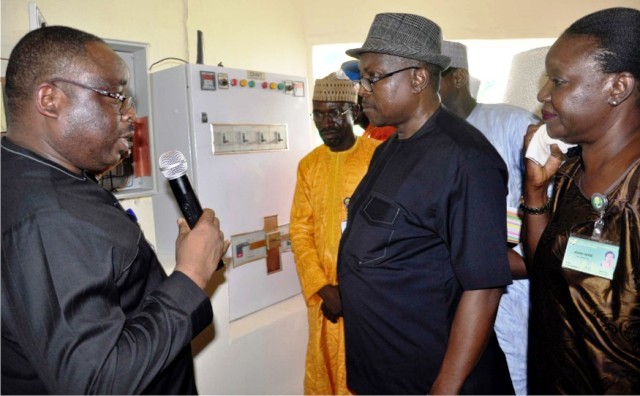Oil & Energy
Degradation Of N’Delta Environment, Unquantifiable – Don

A university lecturer, Dr
Ephraim Elenwo, has lamented the high level of degradation confronting the oil-rich Niger Delta environment, describing the situation as unquantifiable.
Elenwo, who is of the Department of Geography and Environmental Management, University of Port Harcourt, Choba, stated this at a public function organised by the Faculty of Social Sciences, at the weekend.
He said there is urgent need to resolve issues concerning the crisis and environmental pollution in the region before it becomes too late for all concerned.
The don explained that the population of the region had hitherto been exposed to the dangers of environmental degradation on a regular basis and reiterated the desire for adequate campaign and sensitization of the upcoming generation to safeguard such through environmental remediation.
He said, “Environmental matters ought to be everyone’s business; reason being that we are all affected by the degradation that is causing unlimited health-related problems in the area.
“The Niger Delta environmental degradation is abysmal and needs urgent attention by the government, stakeholders and dwellers of the area themselves”, he said, adding that waste could be recycled to create wealth and employment for the teeming youths.
According to the university lecturer, the environmental pollution is so grave that one cannot obviously ascertain whether the seafood is safe for human consumption anymore and the food crops grown in the region are planted on abandoned dump sites that have not been remedied.
He said that the situation has become major causes of illness and reduced life span in the country, particularly in the Niger Delta region, where he noted that environmental pollution measures are flouted by the multinational oil companies and their collaboration in government.
Chris Oluoh
Oil & Energy
Electricity Consumers Laud Aba Power for Exceeding 2025 Meter Rollout Target
Oil & Energy
NUPRC Unveils Three-pillar Transformative Vision, Pledges Efficiency, Partnership
Oil & Energy
Collective National Prosperity Is Our Driving Force – NNPCL
-

 News1 day ago
News1 day agoNigeria Has Woken Up From Slumber Under Tinubu – Shettima
-

 News1 day ago
News1 day agoOji Clears Air On Appointment Of 15 Special Advisers By Fubara
-

 Featured1 day ago
Featured1 day agoRivers: Impeachment Moves Against Fubara, Deputy Hits Rock …As CJ Declines Setting Up Panel
-
News1 day ago
Nigeria To Begin Exporting Urea In 2028 -NMDPRA
-

 News1 day ago
News1 day agoEFCC Indicts Banks, Fintechs In N162bn Scams
-
News1 day ago
Situation Room Decries Senate’s Delay On Electoral Act, Demands Immediate Action
-
Niger Delta1 day ago
Tinubu, Leading Nigeria To Sustainable Future – Okowa … Lauds Oborevwori Over Uromi Junction Flyover Construction
-

 News1 day ago
News1 day agoKing Jaja Impacted Beyond Rivers -Deputy Gov

